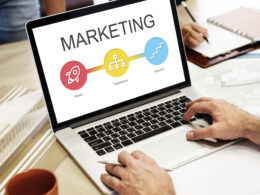For many inventors, coming up with the “next great idea” is the easy part. Commercializing the invention is the challenge. So many inventors turn to invention marketing brokers to do the marketing for them. Each year, the patent office issues 200,000 patents. Of those, only 2% ever meet with any commercial success. So it would seem that using a purported expert in invention marketing to handle the promotion of one’s invention makes a lot of sense. And it can. But like in any industry, there are reputable firms, and less than reputable firms when it comes to invention marketing brokers. If you’re going to consider using one of an invention marketing firm, consider these points first:
Base your relationship on performance:
Make sure that the invention marketing firm gets its compensation from the successful commercialization of the invention, and not from hefty fees charged to you up-front. If there is any up-front fee, make sure you clearly understand what you are getting for it. If little or no up-front fees are charged, then compensation from a successful license or sale is generally deemed acceptable in the range of 5% to 15%.
Compare the invention marketing firms accepted inventions to the total inventions submitted:
A firm that accepts all or a majority of the inventions submitted to it is likely making money off the fees charged upfront and is not focused on making its fees from successfully marketing inventions.
Compare inventions marketed to inventions committed:
Always find out the number of inventions the firm marketed on average per year relative to the total number they commit to market.
Confirm that the invention marketer knows your market:
Make sure that the firm has been successful in the specific industry in which the likely licensees of your invention operate. Many firms specialize in specific industries and firms with positive track records in those industries are able to draw upon existing contacts when marketing your invention.
Check the name:
Ask if the company has changed its name or its address in the last ten years. If so, how many times and why.
Delve into the invention marketing details:
Ask the company to detail its method of marketing. Does the company simply list the invention along with dozens of others and mail out this list to potential licensees, or does the company actually invest time and money in the process by making specific phone calls and/or personal visits to the company.
Look into the invention marketers background:
Ask if the company has ever been investigated or penalized by the Federal Trade Commission, any Attorney General, consumer protection agency, or any Better Business Bureau, and why.
Split out your patent from invention marketing:
Use your own attorney to do your patent work and use the marketing firm to do the marketing. It’s best not to pay fees for patent filing and prosecution services to a firm that is probably more of a marketing company than anything else.
Get references:
Ask for references of other inventors who have utilized the firm’s services. Contact references before getting into a relationship with any invention marketing firm.
Always make sure you have an ‘out’ from the agreement:
The best type of termination is ‘at will’ in which either party can terminate the relationship. If that’s not available to you, at least make sure you can terminate the agreement for ‘non-performance.’ Make sure that a specific definition of performance is provided so that success, or the lack thereof, can be objectively determined. The worst thing that can happen is for your invention to be tied up by an invention marketing broker that’s not performing up to expectations and for you to lose precious time.
Our Bottom Line
Invention marketing and invention brokerage firms can be a valuable resource, especially to those of us who are better at creating new products than marketing them. But if you choose to engage one of an invention marketing firm, just proceed with caution. Do your due diligence first, and make sure you establish a relationship with them in which their real compensation comes from a successful outcome.





